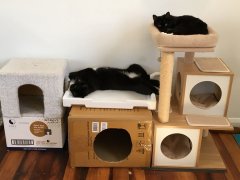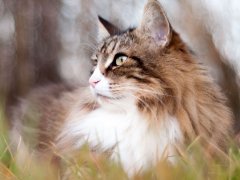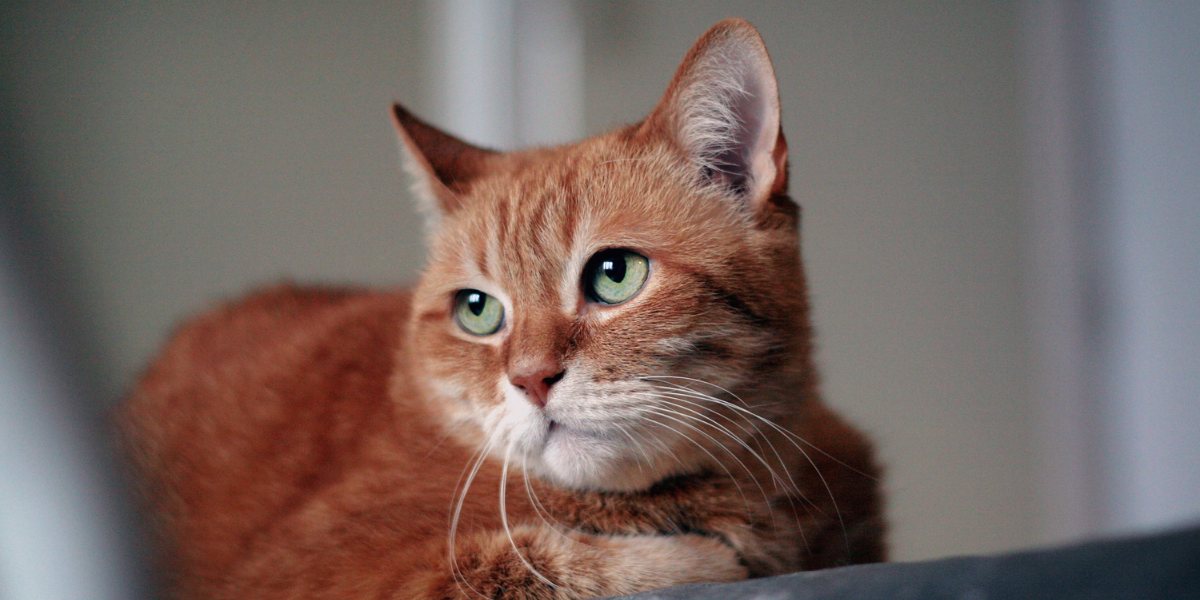
Cats have a highly developed and sensitive sense of hearing to help them successfully hunt prey. They have upright ears that allow them to detect sounds easily and can amplify sound waves 2-3 times for frequencies of 2000 and 6000 Hertz (Hz).
Cats also have 30 sets of muscles and can rotate their ears by 180 degrees to detect even more sounds from different directions.
The lower limit of hearing for cats is the same as humans at around 20Hz, but a cat can detect sound at frequencies up to 64,000Hz whilst humans can only hear up to 20,000Hz. This means cats can hear sounds that are a long way away from them, helping them locate their prey and even determine exactly what the prey is!
What Sounds Do Cats Love?
1. The Sound Of Other Cats
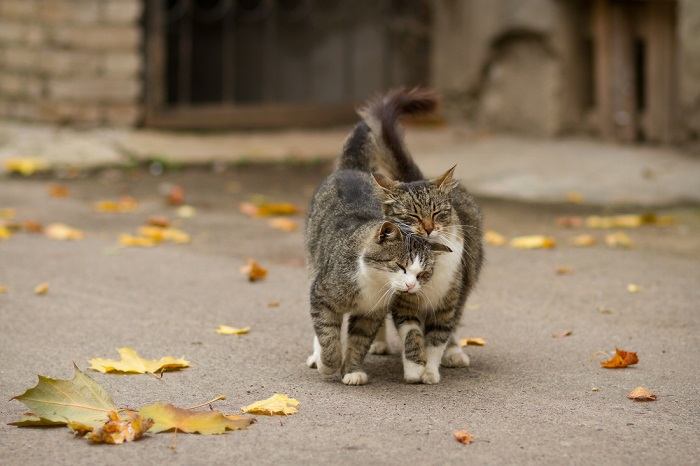
Cats actually meow to communicate with humans more than with other cats – it tends to mean they want something from us, such as food or attention.
Like all species, cats use a range of vocalizations to communicate. So, it should be no surprise that cats enjoy the sounds that their fellow felines make!
Cats actually meow to communicate with humans more than with other cats – it tends to mean they want something from us, such as food or attention. They also use meows as a greeting, and if they hear another cat meow, it will grab their attention.
Cats also make a chattering or chirping sound. You’ve probably noticed your cat doing this when they spot a bird outside the window – it usually means they’ve seen something interesting and lets other cats know that there might be some prey around. If they hear another cat howl it will get their attention as it suggests another cat is in distress.
Cats purr when they feel happy or relaxed, such as when we are stroking them, when they rub against objects, and when another cat is grooming them. They sometimes also make a trill sound to communicate happiness and affection.
2. Sounds Similar To Their Prey
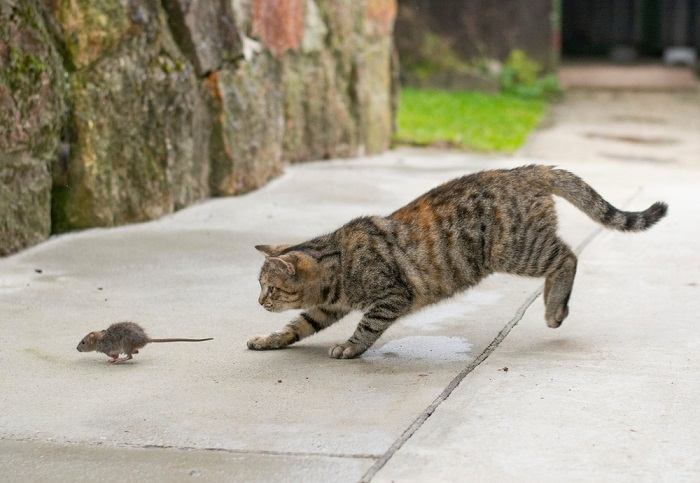
Cats are wired to react to the sound of birds, mice, and other small rodents.
Cats have strong hunting instincts, and even though some are more avid hunters than others they all love the sound of prey. Cats are wired to react to the sound of birds, mice, and other small rodents, as it stimulates their senses and hunting instincts – these sounds excite your cat and make them head straight for the garden!
Also Read: How Do Cats Hunt?
3. Natural Sounds
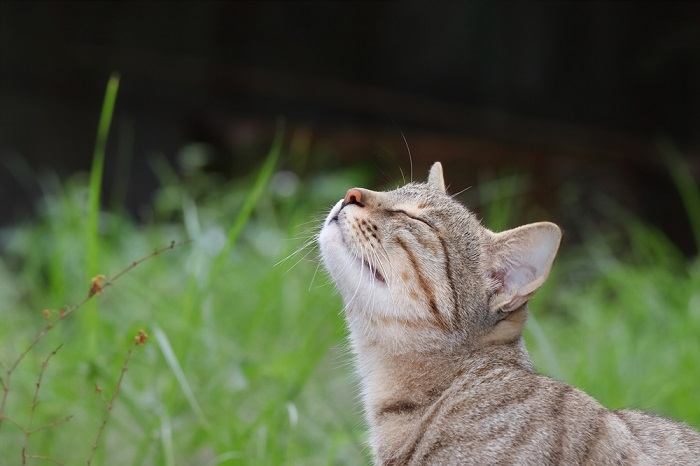
Just like we humans find the sounds of nature calming and relaxing, cats enjoy these peaceful sounds that help them to feel restful.
Just like we humans find the sounds of nature calming and relaxing, cats enjoy these peaceful sounds that help them to feel restful. The sound of light rain, running water, or wind blowing gently in the trees can help to relax your cat and allow them to rest and sleep.
Cats enjoy silence as they can switch off their busy senses after being outdoors or playing indoors, and gentle, natural sounds have the same effect.
Also Read: Are My Cats Playing Or Fighting?
4. Classical Music

In some settings, such as catteries, shelters, and vet clinics, playing classical music in the background can help create a calm and relaxing environment for the cats.
For us humans, music can make us experience a range of emotions and be stimulating or relaxing. But what about cats? You might have noticed that your cat doesn’t pay a huge amount of attention to the music you play, but as cats like soothing and calming sounds, it’s logical that they will find classical music relaxing, but some loud rock music might be too much for them!
In some settings such as catteries, shelters, and vet clinics, playing classical music in the background can help create a calm and relaxing environment for the cats. So, what does the research say?
Also Read: The 7 Best Calming Cat Treats
Some research shows that cats don’t actually show any preference for particular genres of music, but that if the music is species-appropriate (i.e. at the right pitch and frequency) it will have the desired calming effect.
Classical music is generally suitable for cats, and although there’s little evidence to prove it, anecdotally it does seem to create the desired calm environment we want in shelters and vet clinics.
5. High Pitches
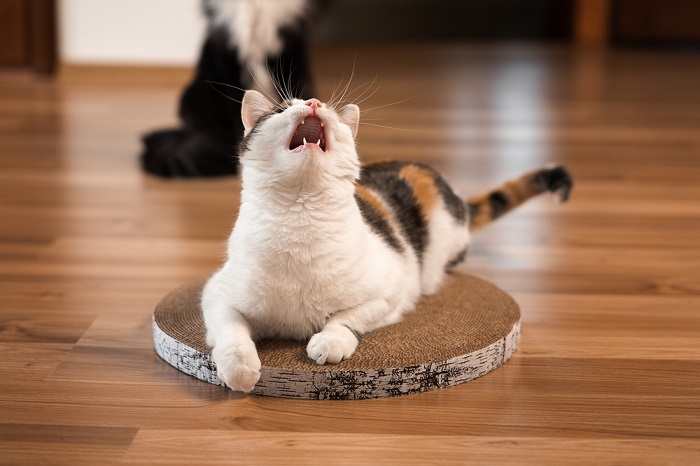
Lower pitch sounds tend to be a bit more frightening for cats.
Cats respond better to high-frequency sounds than they do to lower ones, probably because their range of hearing is so wide and allows them to hear up to 64,000Hz. This means they also tend to respond better to the sound of women’s voices than to men.
Lower pitch sounds tend to be a bit more frightening for cats. This is likely because prey makes higher-pitched sounds, so cats are more alert to this.
Also Read: 8 Ways To Help a Scared and Fearful Cat Be Confident
6. Long Vowel Sounds
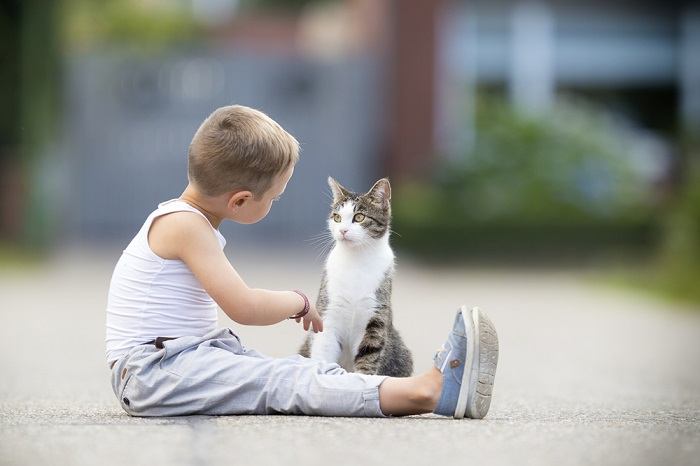
Cats respond more enthusiastically to longer vowel sounds, especially when we are calling them.
Cats respond more enthusiastically to longer vowel sounds, especially when we are calling them. It is not known why this is the case.
7. Rustling Or Rattling
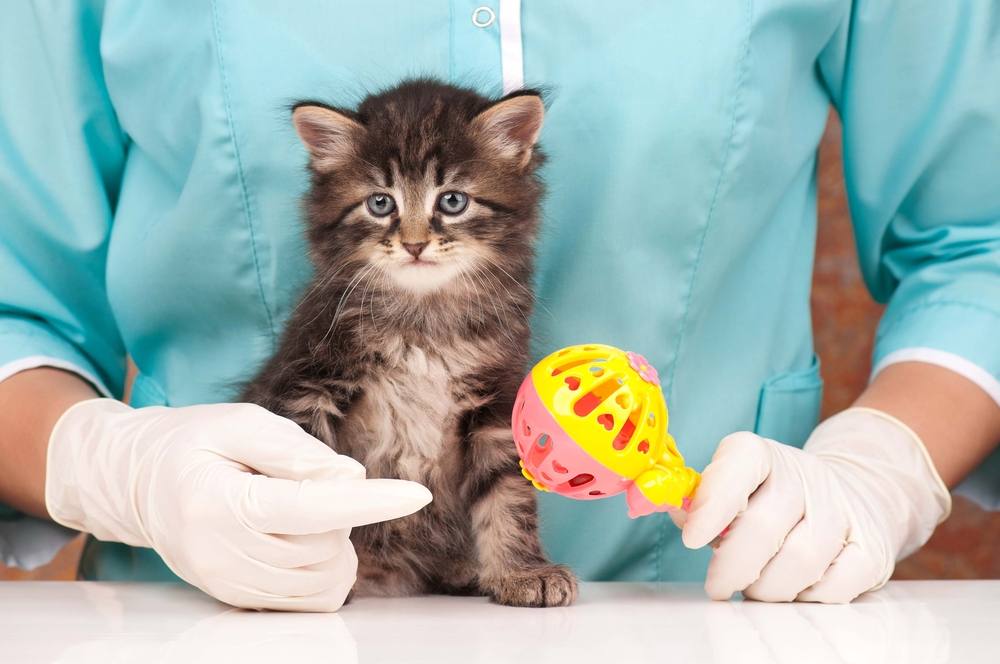
Any rustling or rattling sounds signify playtime or mealtime, and cats usually respond very enthusiastically to these sounds! In the wild these sounds might be associated with prey being close by, hence they associate it with mealtime.
It also tells your cats something is moving – and all of us cat owners know how much our feline friends love to chase a moving object! A lot of cat toys are designed to make these sounds to make playtime more stimulating and interesting.
Also Read: Moving Cats To A New Home: A Step-By-Step Guide
8. Cat Toys
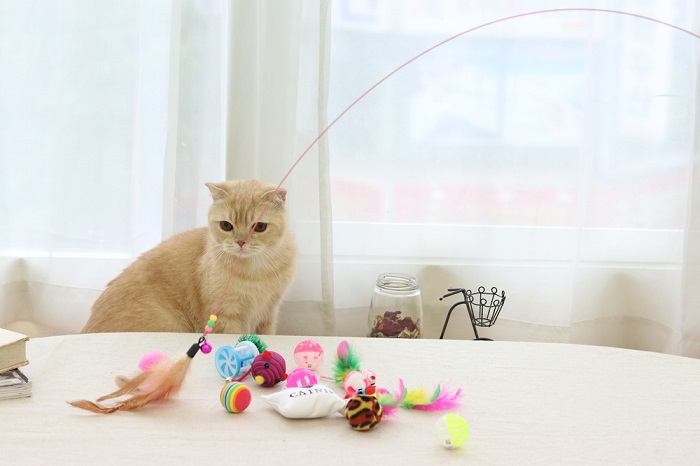
Cat toys are specifically designed and made to be enjoyable and stimulating for your pet.
Cat toys are specifically designed and made to be enjoyable and stimulating for your pet. They make sounds that mimic their prey, or that stimulate their senses. Lots of cat toys squeak, rustle, rattle, or jingle and you will have noticed that these are probably your cats’ favorite toys.
They make playtime more exciting and get their senses switched on and prepared ready for hunting, or mimic hunting for cats who live indoors.
9. Soothing Sounds
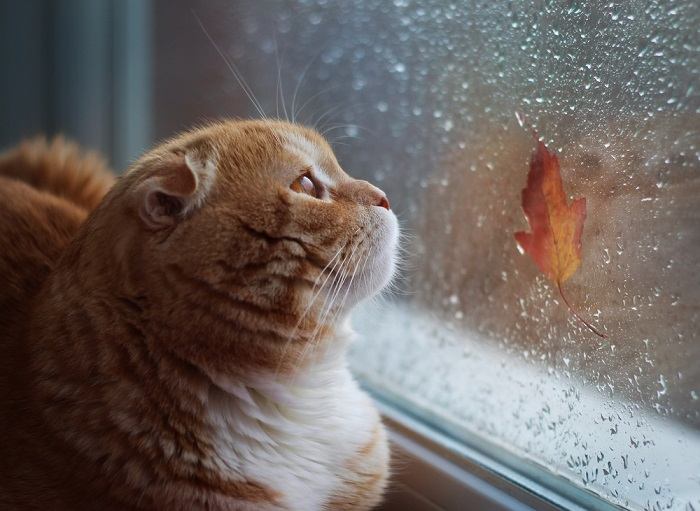
Soothing sounds such as those from nature that we humans find relaxing, such as spa music, gentle rain, or running water, will also be calming for your cat.
There is very little research that proves why cats might prefer certain soothing sounds, but we do know that cats like silence and a peaceful environment when they want to rest. We think it helps them to switch off their senses and hunting instincts when it’s time to sleep.
Soothing sounds such as those from nature that we humans find relaxing, such as spa music, gentle rain, or running water, will also be calming for your cat.
Also Read: When A Cat’s Meow Sounds Strange (Hoarse Voice)
10. Cat-Specific Music
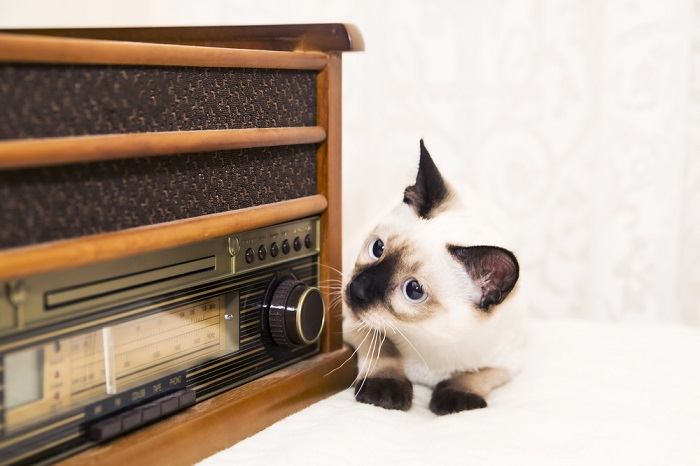
There is a growing range of cat music out there for your pet to enjoy!
Scientists know that cats don’t have a preference for any particular genre of music but that music needs to be species-appropriate. This means that it needs to be within a cat’s comfort hearing range for them to enjoy it.
The music needs to be similar or have the same frequency and tempo as the sounds naturally used by cats to communicate with each other. There is a growing range of cat music out there for your pet to enjoy!
Also Read: Do Cats Like Music?
Sounds Cats Hate
Whilst there are lots of sounds cats enjoy, there are also some sounds that they absolutely hate. Cats have such sensitive hearing and can hear such a range of sounds that they hear things we don’t.
Any loud or low-pitched noises are very uncomfortable for cats, whilst prolonged high-pitched or loud noises might irritate your cat by constantly stimulating their senses. They particularly hate the sound of vacuum cleaners, loud fast beat music, sudden loud noises such as clanging or dropping something on the floor, and thunderstorms or fireworks.
Of course, we can’t always avoid these sounds, but you can minimize your cat’s stress by putting them in another room while you vacuum, and by drowning out thunder or fireworks with other more comfortable sounds.
When it comes to rest time, cats enjoy soothing sounds that help them to wind down. You should do your best to avoid sudden loud sounds and be aware that your cat won’t enjoy loud music, or the vacuum, and might be frightened by thunder or fireworks. You can drown out these sounds or use pheromones to help your cat relax when necessary.
Also Read: How to Get Cats To Like Each Other In 10 Simple Steps
Frequently Asked Questions
What sounds do cats love to hear?
Cats love the sounds of other cats, sounds that mimic their prey, classical music, or any soothing sounds, and they also love high-pitched and long vowel sounds.
What sounds are soothing to cats?
Cats find classical music and other natural sounds soothing.
How can I call my cat?
It’s best to call your cat using a relatively high-pitched voice. Cats have super sensitive hearing and prefer higher pitches, so they are more likely to pay attention to you this way! You can also use clickers, rattle a packet of treats, or even tap a food bowl to entice them to you.
Do cats prefer silence?
Cats like peace and quiet, and silence allows them to relax and sleep. Loud or sudden noises can frighten cats as well as stimulate them. Silence will help your cat to rest.

